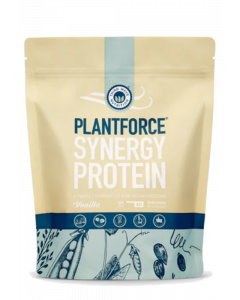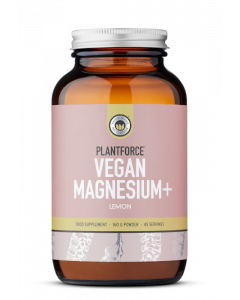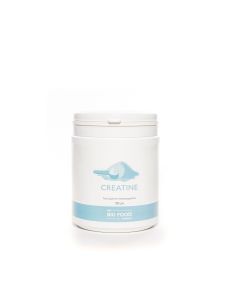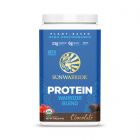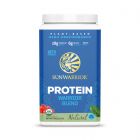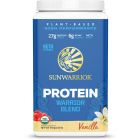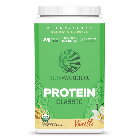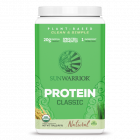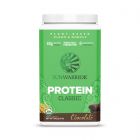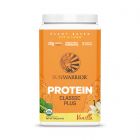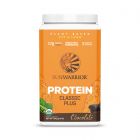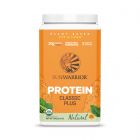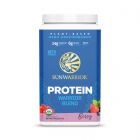Lifting Weights or the Diet – Which is More Important for Muscle Gain?
- By Patrick McCarthy (MSc)
- 15 May 2021


Let me first begin by stating this well-agreed upon fact – You cannot gain considerable lean mass of muscles while completely neglecting either the diet or training. Both are essential ingredients for accruing muscle.
With that said, if you are just beginning your journey of strength training, in the initial weeks and months, you will experience some muscle gains. These will occur, even if you don’t pay attention to your diet e.g. protein intake, but not to the degree of an individual that does.
Based on that, I guess we could say that strength training is the most important in the early stages, because it provides the literal stimulus for muscle repair and growth. Without that, consuming all the protein in the world will be pretty ineffective.
But, as you progress out of the beginner phases of training, both pieces of the puzzle i.e. progressive training and optimal nutrition, become crucial!
Let’s take a look at the muscle building process shall we?

How do we build muscle?
Muscle is a soft tissue made up of elongated (long) cells known as muscle fibres. In its simplest form, it is made up of combinations of amino acids.
The thing most people don’t know about muscle is that the tissue is constantly turning over. This simply means it is always experiencing break down (catabolism) and building back up (anabolism). Muscle loss occurs when muscle breakdown exceeds the rate of the building (a process known as protein synthesis) and muscle gain occurs when vice versa!
Here is where it gets tricky – lifting weight and loading the muscle stimulates protein synthesis (muscle-building process) by up to 100%, but, the breakdown of muscle that actually occurs in this process outweighs the increase in building, so we remain in negative protein balance.
This highlights the importance of feeding your body amino acids through high-quality protein in combination with the stimulus (strength training) of breaking down the muscle fibres.
So, how does our muscle actually get bigger?
When we train, we literally break down and tear the myofilaments in our muscle fibres. This activates a cascade of events that, when protein is available, works to build up and strengthen these fibres. The result is an increase in the cross-sectional diameter of the fibres and a bigger muscle. This process is known as hypertrophy.

So, what happens if I just eat more protein?
High-protein diets have received a lot of attention in recent years, for a variety of reasons, some of which lie outside the scope of muscle gain. For example, many individuals that have difficulty losing weight, find some success in a higher-protein diet, as this is the most satiating nutrients.
In terms of muscle gain however, when individuals are slurping their protein shakes (whey, casein, vegan protein) twice a day, to go along with one training session a week, it does perplex me! For increasing muscle size and strength, you need to stimulate the process of muscle fibre regeneration by breaking them down and applying stressors. In other words, you need to train.

What happens if I just lift weight and forget about the diet?
This is a little more complex and there are a couple of different scenarios that could play out. Think about it, just because you don’t pay attention to the diet, doesn’t mean that you’re not ging to consume enough protein. Some people have a protein-sufficient diet already, to support their muscle building goals.
So, you see, this is not the same as the previous question. Even though you’re not focusing on the diet, you haven’t cut out food completely. In other words, it is difficult to observe the effects of resistance training in the complete absence of food, but from basic physiological principles, our muscle would waste pretty quickly.
More specifically, if you are under-consuming protein and begin resistance training for the first time, or first time in a while, you’ll begin to notice some “beginner gains” after the initial weeks. These may continue for a short period of 1-2 months, at which point you’ll notice a plateau.
It is at this point, that you’ll need to provide sufficient protein to the working muscles to create that positive protein balance (called nitrogen balance, because nitrogen is one of the byproducts of protein breakdown).

What are some of the things I should incorporate into my training?
While this is not technically my department, I do have an undergraduate degree in Exercise Science along with several years in self-directed research, so I’ll highlight the most well-known aspects of the optimal training plan for muscle gain.
You’ll need to:
- Train at least 2-3 times per week
- Aim for higher repetition ranges (6 – 12) to stimulate the hypertrophic response
- Work all muscle types sufficiently (accumulate sufficient “time under tension” for each muscle group) – This is why full body workouts that are completed in 40 minutes are not optimal for mass of muscles gain
- Use a manageable weight – Overloading the weight can reduce the quality of the lift, limiting the isolation of the actual muscle. This can also lead to injury.
- Be progressive – Put a plan in place, work with a professional, have set goals for increasing weight and/or resistance progressively. Push your muscle to continuously adapt.

What are some of the things I incorporate into my diet?
Ah, this is right in my specialty area!
There are a variety of strategies that can be implemented during the course of your training, but let’s look at the non-negotiables:
- Consume enough energy (Calories) - Make sure you are consuming three to four pillar meals each day and increasing this in proportion to your training load
- Consume at least 1.6 – 2.2 grams of complete protein per kg of bodyweight (or if overweight/obese, ideal bodyweight) every day
- Prioritise daily protein targets over nutrient timing, especially if you are in the early stages of your muscle gain journey
- Stay hydrated (drink 25 – 30 mls of water per kg of bodyweight every day)
- Consume enough omega-3 fatty acids through the diet or afish oil / algae oil supplement
- Consider a creatine supplement for increased muscle size and strength capacity (why not try ours?)
- Eat plenty of fruit and vegetables, which contain the antioxidants needed to regulate inflammation in response to training. But, we want some inflammation, as it stimulates the adaptive response.
- Get six to eight hours of sleep

How will I measure progress?
A simple weighing scales is often used as an objective marker of progress in either weight loss or gain. However, because your goal is muscle, rather than weight gain, a scales does not provide the best measure of the composition.
With that said, it is still useful, but you’ll need to combine it with other progress markers. With respect to lean mass gain, here are some other things you should monitor throughout your journey:
- How your clothes are fitting e.g. “My shirts/jeans are feeling a little tighter”
- Your subjective visual appearance e.g. “Am I more muscle-ey?”
- Your strength levels in training e.g. “I can do 12 repetitions easier with this weight”
Tying it all together
Hopefully this article demystified the idea that you can optimise your body composition with training or diet alone. It is widely-agreed upon that you will need to focus on both of these aspects by incorporating some of the above strategies.
Related articles
- Our nutritionist weighs in on Whey! All about whey protein.
- Can omega 3 improve muscle function?
- Building muscle 101 - How does it work and why is protein important?


